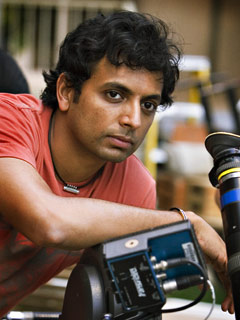
I've had crud before and dang if I haven't had it again. I know none of you want to hear my litany of complaints so I won't enumerate them. Suffice it to say my crud hasn't been the flu or even rotten enough to carry me off to a doctor, thank goodness. I just wish I owned stock in Aireborne, Zinc, Vitamin C and Slippery Elm tea and Allegra D and whatever brand of sinus medicine I can find that does NOT have Tylenol in it because I take a pain medicine that has Tylenol. I've learned you just don't want to add too much to your system. I'm finally on the road to recovery and strangely enough everyone I speak with or read about on Facebook or run into at the grocery store or drug store have been fighting some form of the crud. Hope you've all been healthy.
I've managed to get quite a bit of reading done and one of the best new books was A SONG TO DIE FOR by Mike Blakely. You may not have heard of Mike before, but he's a local singer/songwriter/musician who also writes historical westerns. If you haven't read him, look for COMANCHE DAWN as that one blows me away. He's won Spur Awards from Western Writers of America for SUMMER OF PEARLS. He also won a spur for a song, "The Last of The White Buffalo," which was the first Spur ever given for a song. A few years ago he did a book with Willie Nelson, titled A TALE OUT OF LUCK. Last year he did a book with Kenny Rogers, titled, WHAT ARE THE CHANCES.
A Song To Die For is the closest to a mystery as you can get from a western writer.. It's set in 1975 and features a guitarist/singer Creed Mason who is hoping to ride the wave of new Austin style music. His last hope is to team up with a washed-up legend named Luther Burnett. If you enjoy Music lore and a little romance and mob-killers from Las Vegas, give this one a try.
One thing I read about this week and it's been my stand-by for a few years, when you're asked to do a reading at an author event, please don't just read from your work. I mean, you can and should read from your work but read a little, then stop. Talk a bit, about where that particular scene came from or the trouble you had with it until you finally realized a solution came from. Then you're ready to read a bit more. You don't want your listeners eyes to glaze over do you?
No matter how interesting your own writing sounds to you and I know you love every word you have written, but to just read can be way too boring. Another thing if you can...use a bit of acting expressions as you read. When you use a male voice (and you're a woman) lower your voice a bit. And if it's a female voice then speak a bit more in a feminine voice. If there's action going on, then make your voice sound excited. If it's a quiet and reflective scene, read it quietly but try your best to not read too many lines of quiet.
I think this is something I learned early on, maybe even before I read any of my own work. But a writer who came to my bookstore, Judy Jance (aka J.A. Jance) brought it home to me and to a couple other writers who attended the book signing. Ms Jance read a bit, then talked a bit, the read a little more. Everyone in the audience seemed to hang on every word. And she made everyone there want to read her book.
Book signing events can be a lot of fun or a real drag if you're at one of those big chain stores. If you've been asked to do a reading, try to make it as interesting as possible. If you're just sitting at the front of one of those big box stores, try to catch people's eye and engage them in conservation. A large number of writers are basically shy and have a hard time speaking in public. Most would rather just stay home and write. But you have to do something to help get your name out to the book buyers. If you are shy, try to imagine that you're an actor who has taken on a role of a writer. That you will act out this book signing event as a role you're playing and once it's over, you'll quietly go back to your office and write. It's not the easiest thing if you are shy, but you do want to sell your books.
Okay, class, that's all for this time. Hope you're not suffering from the crud and if you are, that you're over it soon.










































